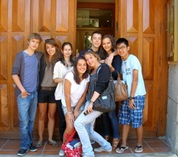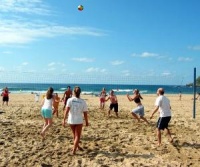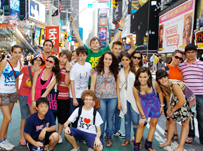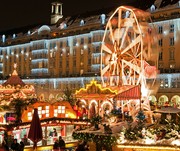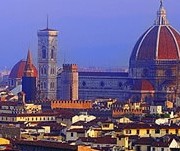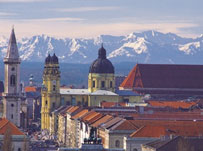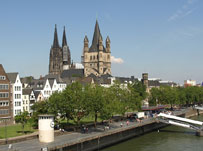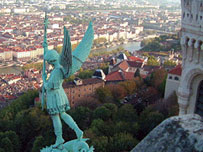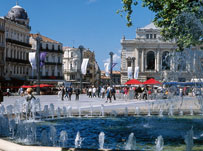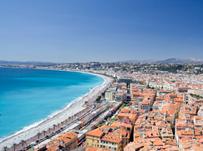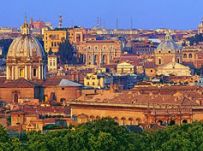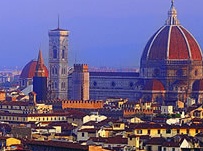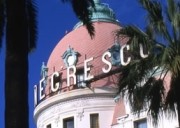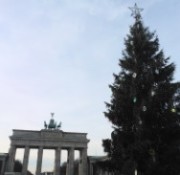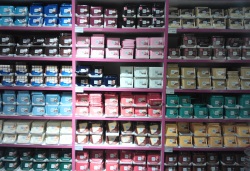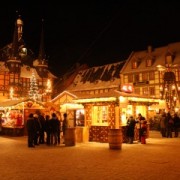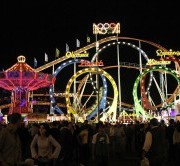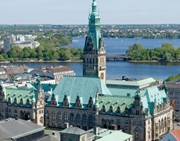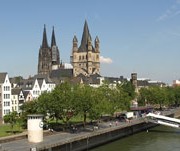Focus On: Spring Ideas
Hello, and welcome to the April 2014 edition of the Cactus Worldwide blog for our foreign language courses abroad! My name is Ollie, and I am the Product Manager for our agency – Cactus Worldwide. Our team of experienced course advisors are here every day to discuss options with you and help set up a varied range of unique language-learning experiences, all over the globe, throughout the year, for all of our wonderful students.
This month’s blog offers a quick update on some of the great special offers currently available to book via the Cactus website, and also offers some European destination ideas for brushing up your language skills over the next few months.
If you have any questions about anything you read here, please feel free to contact me directly via oliver.donovan@cactusworldwide.com and I’d be happy to answer any questions.
1. Get twice as much for your money on selected dates in Ibiza!
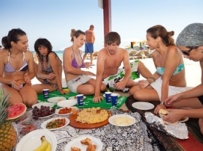
Special offer Spanish Course in Ibiza with Cactus Worldwide & Instituto de Idiomas Ibiza
Beyond her globally recognised reputation as a hedonistic ‘party island’, the destination of Ibiza has far more to offer a visitor than nightlife and club culture alone. Stunning beaches, beautiful green spaces and laid-back, friendly people make this a great choice for anyone looking to brush up their Spanish somewhere away from the mainland.
Affordable accommodation and flights from most international airports make this choice an easier one on the wallet as well, not to mention that fantastic new special offer we have for you on selected dates! If you book 2, 4, 6 or 8 weeks of Spanish in Ibiza Town, for a start either on May 12th, or September 29th 2014, then you will receive twice as much for your money – that’s 2 weeks for the price of 1; 4 weeks for the price of 2; 6 weeks for the price of 3; or 8 weeks for the price of 4! The offer applies to the school’s essential General Course of 20 lessons per week (4 lessons per day) in international groups with a maximum of 8 students – all course materials and registration fees are included in the prices you see on our website, and classes are available for students of all levels. There are also huge savings to be had for the same start dates on the school’s Intensive Course of 30 lessons per week, for any students who want to push themselves that bit harder, and spend a bit more time in the classroom – you can see the info here!
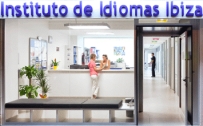
Independent, family-run, Instituto de Idiomas Ibiza is fully air-conditioned and equipped with computers, learning materials and free Wi-Fi, and is centrally located just moments from the coast on Avinguda D’Ignasi Wallis (https://goo.gl/maps/6J4ZC). Its medium size gives the school a welcoming and intimate atmosphere where all students quickly get to know one another, and there is always a great mix of ages, nationalities, and abilities in attendance – so a perfect choice for groups, couples, or solo travellers alike!
2. 5 weeks of French classes for the price of 4 on the French Riviera!

5 weeks of French for the price of 4 in Nice with Cactus Worldwide & France Langue
This is a ‘Happy Birthday’ offer for our partners in Nice, on the French Riviera. This city centre school, owned and operated by quality small chain France Langue, turns 20 years of age this year – and to celebrate they are offering a free week of French classes for any students who are able to attend the school for a month or more, any time in 2014!
The offer applies to both the General Course (20 lessons per week), offering a saving of almost £200; and the Intensive Course (30 lessons per week), with a huge saving of £275 on the course fees, which are inclusive of all registration fees and course materials. Classes here take place in groups with an average size of 10, and occur in the morning or afternoon dependent on your level, and the time of year (outside of the summer season, most classes take place in the morning, when the school is quieter). The lessons focus on improving comprehension, grammar awareness, and all four vital skillsets of speaking, listening, reading and writing; and for students opting for the intensive course option, additional classes take place in the afternoons which focus on conversation skills, writing skills and understanding phonetics.
The best thing about this school is the huge range of activities and excursions available to students throughout the year, and this makes it a superb choice for solo or first-time travellers. Many students combine their French studies with sports sessions, cookery or culture classes, as well as taking advantage of the extensive social programme scheduled by their experienced team (20 years’ experience that is!). You can view the programme here, and check out the special offers on our website here. Profitez-en!
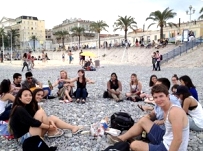
3. Great value German courses all year round at the Fremdsprachenforum in historic Cologne
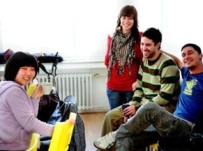
Learn German in Cologne with Cactus Worldwide & Fremdsprachenforum
Have you ever been to Cologne (Köln)? If not, perhaps now is the time as this is another historic, must-visit European destination that is increasingly well served by affordable flights from a range of international airports. The medieval city spreads out on either side of the River Rhine in North-West Germany, and hosts some of the most incredible modern architecture in the country, as well as the famous Kölner Dom, a UNESCO World Heritage site. The cathedral is Germany’s most-visited cultural attraction, with approximately 20,000 visitors every single day! Plenty of quality shopping opportunities and a vibrant nightlife (more than 70 nightclubs and late-night bars) neatly round the city off as one of the key places to visit in order to discover Germany’s past, present and future.
Our colleagues at the Fremdsprachenforum on Lindenstrasse (Claudia & Chantal) run a true family-feel school close to the city centre, completely independent, and incredibly welcoming to students of all ages, abilities and nationalities. The school prides itself on providing the highest quality teaching possible, and at affordable prices, meaning you can take a General Course of 20 lessons per week here for as little as £88! A Combined Course which provides 20 group lessons per week, plus 5 private lessons, is also a bargain at £193 for one week; or a full-on crash course of 25 private lessons in one week is just £483 – a perfect solution for any student who needs to learn as much as they can, as quickly as possible. Long-term students, for example, can spend a month in Cologne, take 20 lessons per week, and stay with a host family in the city for a total of £820, which is excellent value. All the course listings are available to view on our website here.
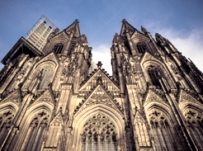
I hope this selection has been of interest, and may have given you some money-saving ideas for the summer months up ahead…
Any Qs at all, as always, please feel free to contact me directly and I’d be happy to help.
Happy planning 😉
Best Wishes,
Ollie
Oliver Donovan
Agency Product Manager
Email: oliver.donovan@cactusworldwide.com


